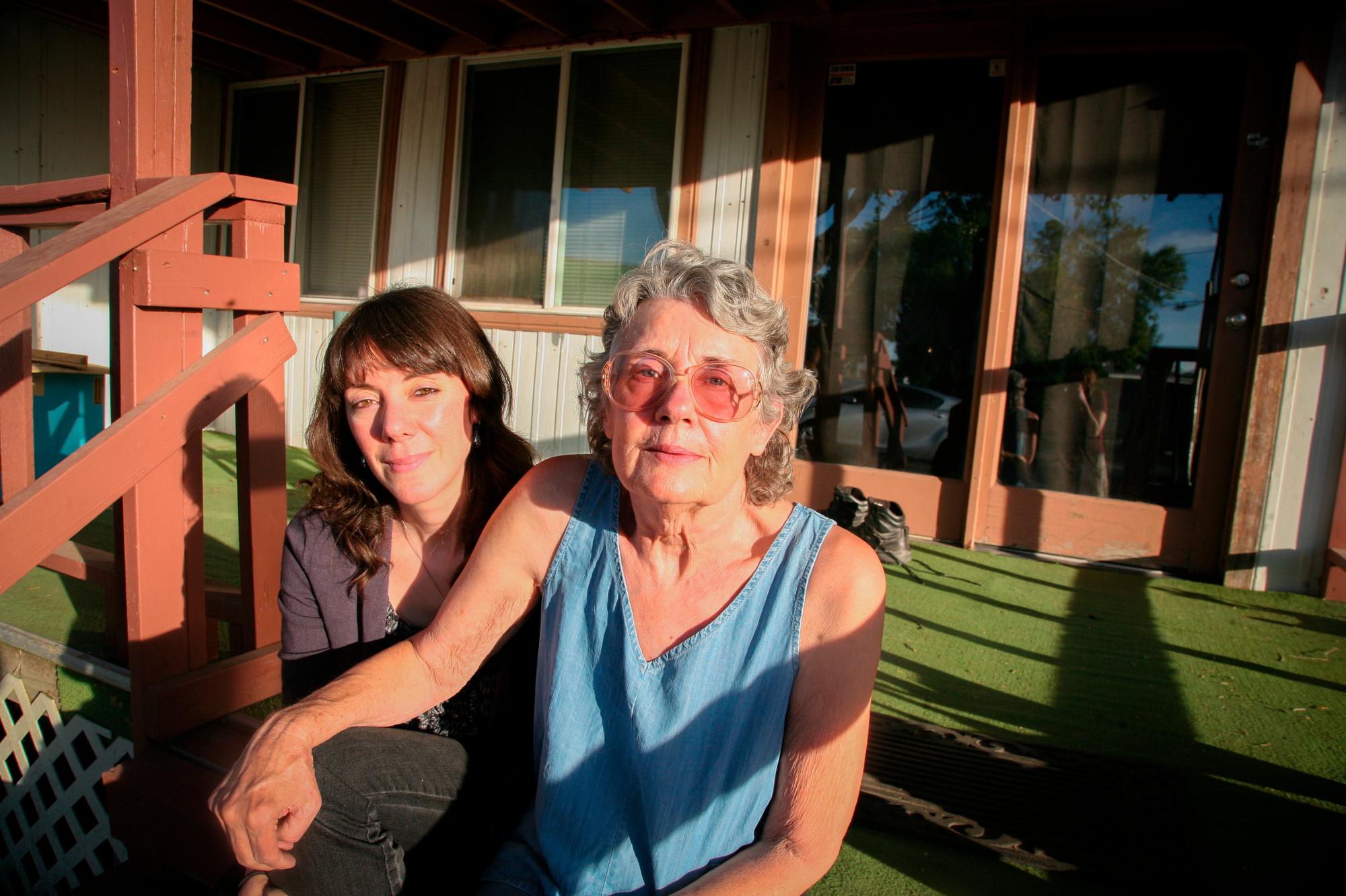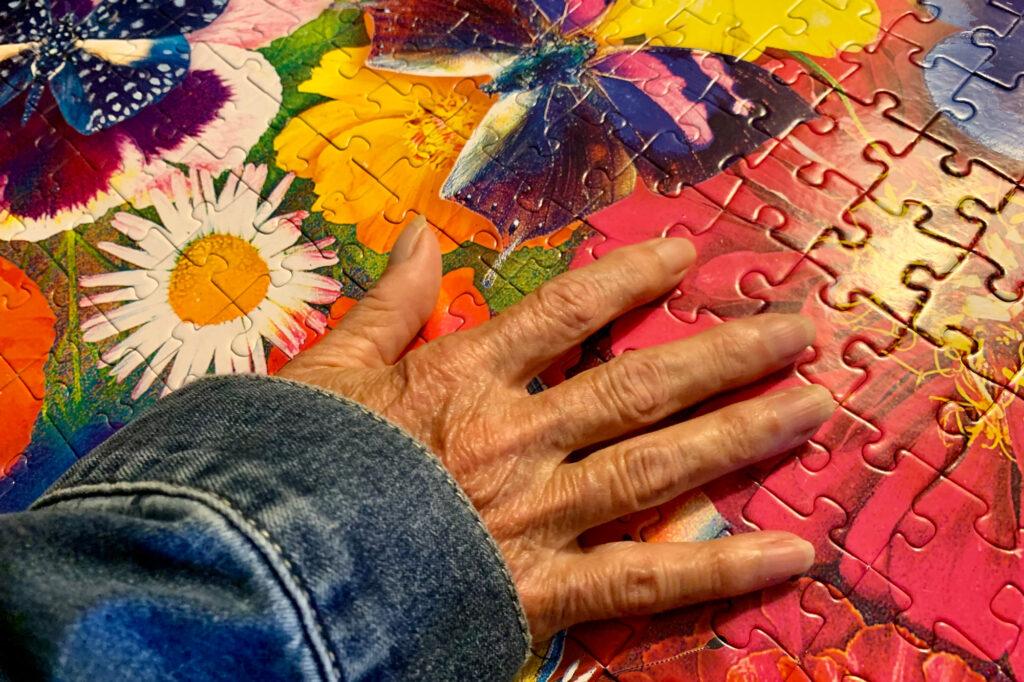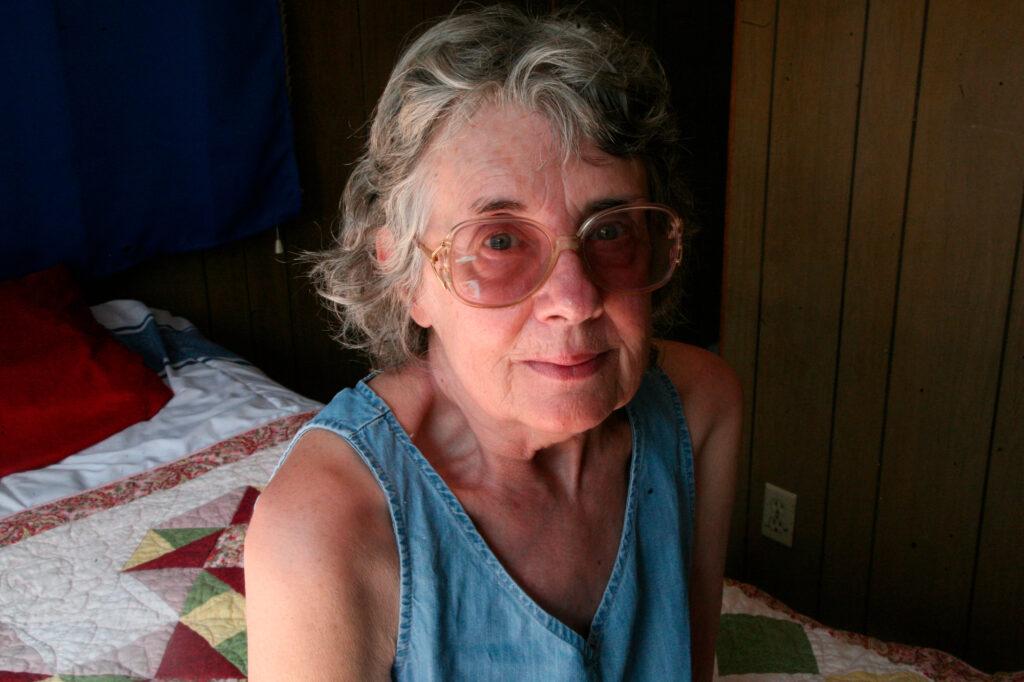
This is part of a series by Colorado Public Radio News about housing instability in Colorado.
Jigsaw puzzles relax Cindy Maney. It feels good to fit the pieces together, to find tiny solutions over and over.
“I like to see progress,” the 74-year-old said, her voice slow and stiff due to a stroke.
Maney touched the shiny, colorful puzzle she just finished, a whimsical scene of bright butterflies and flowers, as traffic from a busy road hummed through the windows. Her shared Grand Junction apartment is simple and spacious, with couches, a TV, comfortable beds — and two roommates, also senior women trying to get back on their feet after becoming unhoused.
It’s called the Golden Girls program, run by The Joseph Center, which also has a day center next door and helps low-income people of all ages find housing, jobs and child care, among other needs. Golden Girls can house up to five older women at a time. The residents, known as “guests,” get six months here as they try to find their way, with the program’s help, into permanent housing.

When asked what makes this better than a typical shelter, Maney didn’t hesitate.
“Everything,” she said, with a laugh.
She can just be here — inside — all day if she wants.
For her, one of the worst parts of shelter life was that homeless shelters typically close during the day and don’t reopen until the afternoon or evening. For hours, Maney would just walk around with nowhere to go.
“It’s like being in ‘Twilight Zone,’ ” she said.
She got so burned that people started calling her “French Fry.”
But at Golden Girls, where she’s been since July, she feels safe and supported by staff that she calls “wonderful,” and particularly by the program’s coordinator, Nicki Tarr.
“They do everything they can to help you, especially my Nicki,” Maney said, patting Tarr on the arm.
Tarr has worked with many older women who, like Maney, have lost housing for the first time in their lives.
“A lot of them are very beat and depressed and very traumatized, gone through a lot,” she said.
Tarr has seen women dealing with mental health issues and partner abuse. Some have lost a spouse and have never lived alone before. Thirty Golden Girls have been in the program so far, and Tarr always tries to show them change is possible. She, too, lost housing about a decade ago. She was 19 then, and she and her dog ended up sleeping at friends’ places and in her car. After several months, a local charity helped her rent a small trailer.
“And it was easier back then because housing was cheap, but it's so much harder now,” she said.
Grand Junction’s rental market has become increasingly expensive and competitive in recent years, and prices for buying a home have skyrocketed.
That was the reality facing former Golden Girl Stephani Fisk earlier this year.
“The paperwork alone on the low-income rental assistance was very boggling and very, very, very time consuming,” the 61-year-old said.
When Fisk arrived in Grand Junction, she had just lost her home in a California wildfire — and her 22-year relationship had ended. Her daughter, Kara Taylor, wanted to take her in, but couldn’t because she lives in low-income housing, with strict rules about guests.
- He bought land in Park County before he could afford to build a home. So, he dug a hole there instead and lives in it.
- Older women experiencing homelessness in Grand Junction find a place of peace and progress
- For people sleeping in their cars, parking lots serve as a safe place to get back on their feet
- For one Colorado trans woman, long-term care was her only option for housing — but getting in was an eight-month struggle
- Inside two Colorado mobile-home communities fighting to avoid corporate takeovers — with very different results
- As pandemic funding for Greeley shelter dries up, residents face housing instability and a return to homelessness
- Undocumented families in metro Denver face added barriers as they struggle to keep their housing during the pandemic
- Colorado’s housing crisis explained. CPR News is exploring the issue by meeting the people living through it
Taylor was so worried about her mom’s safety that at one point she considered moving into a shelter with her.
“So I remember just laying in my bed and crying and thinking I'm going to be living in the homeless shelter with my mom,” Taylor recalled.
That was until they found the Golden Girls.
Her mom describes it as a “stepping stone” to living on her own. She’s now in what she calls her “sanctuary,” a big 1968 mobile home on its own lot. Fisk bought it with the money she got from selling her destroyed property in California.
It was a complex process, but having a safe place to live while she navigated it was “a wonderful feeling,” she said.
“The Golden Girls was golden to me, anyway.”

Fisk is one of its biggest success stories. But the path forward is not as clear for some women in the program. Still, Maney, who’s been a Golden Girl for several months now, said she’s not afraid of the future because of the help she’s getting from the staff.
“They just comfort you and let you know it’s going to be OK, and you really feel that,” she said.
The wait for low-income housing can be up to three years in Mesa County, according to the local housing authority. But it’s gone quicker for many Golden Girls. And Maney can keep getting support from the program even after her time there is up.
She doesn’t know where she’ll land after this, “but these places are a lifesaver,” she said. “More please, more for people.”








